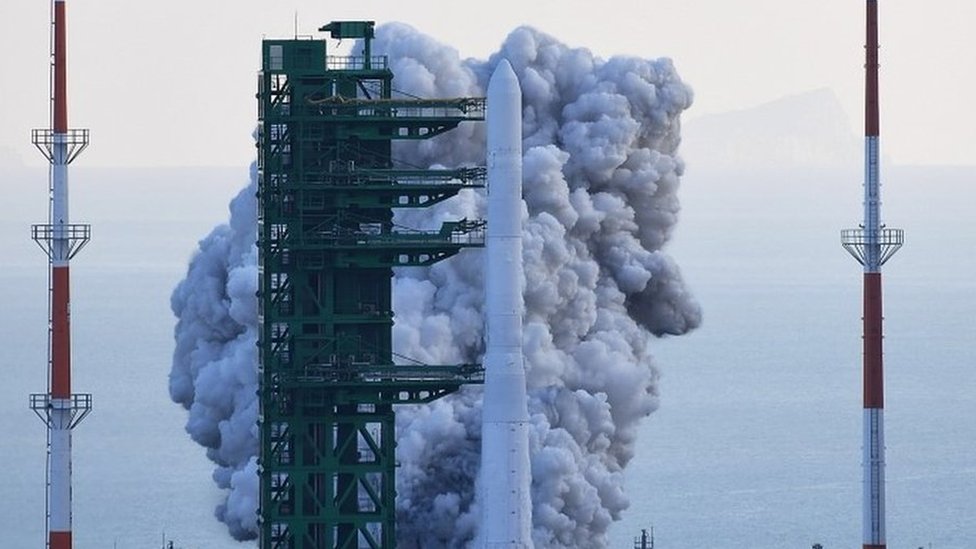SEOUL, South Korea — South Korea launched its first home-built space rocket on Tuesday in the country’s second attempt, months after its previous launch failed to orbit Earth.
Some experts say a successful launch would boost South Korea’s growing space ambitions and prove it has the key technologies to build a space-based surveillance system and larger missiles amid hostilities with rival North Korea.
The three-stage Nuri rocket carrying what officials call a functioning “performance verification” satellite detonated from South Korea’s only space launch center on a small island off the south coast at 4 p.m. Live TV footage showed the rocket flying a national flag flying in the sky with bright flames and thick white smoke above.

Officials will announce the results of the launch later Tuesday.
On its first attempt in October last year, the rocket’s dummy payload reached the desired altitude of 700 kilometers (435 miles) but failed to enter orbit because its third-stage motor burned out ahead of schedule.
If Tuesday’s launch is successful, South Korea will become the tenth country in the world to put a satellite into space using its technology.
South Korea, the world’s 10th largest economy, is a major supplier of semiconductors, automobiles, and smartphones to the global market. But the space development program is lagging behind its Asian neighbors China, India, and Japan.
North Korea placed its first and second Earth-observing satellites in orbit in 2012 and 2016; there’s no evidence that either sent home remote-based images and data. Those North Korean launches prompted UN economic sanctions because they were seen as a cover for testing the country’s banned long-range missile technology.
Since the early 1990s, South Korea has sent several satellites into space, all from overseas launch sites or aboard a missile built using foreign technology. In 2013, South Korea successfully launched a satellite from the ground for the first time, but the Russians manufactured the first stage of its launch vehicle.
After Tuesday’s launch, South Korea plans to launch four more Nuri rockets in the coming years. It also hopes to send a probe to the moon, build next-generation space launch vehicles and send large-scale satellites into orbit.
South Korean officials said the Nuri missile has no military purpose.
The transfer of space launch technology is strictly limited under a multilateral export control regime because it has military applications. Experts say ballistic missiles and space launch vehicles share similar bodies, motors, and other components, although missiles require a reentry vehicle and other technologies.
“If you placed a satellite on top of a rocket, it would become a space launch vehicle. But if you put a warhead on it, it becomes a weapon,” said Kwon Yong Soo, a former professor at Korea National Defense University in South Korea. “If we succeed in launching Nuri, it makes sense because we also pass the test of a long-range missile that can be used to build a long-range missile.”
Lee Choon Geun, an honorary research fellow at the Science and Technology Policy Institute in South Korea, said it is difficult to use Nuri directly as a missile because it uses liquid fuels that must be kept at an extremely low temperature and last much longer. F† He said North Korean long-range missiles also use liquid fuels, but extremely toxic ones are heldormal temperatures and require a faster fuel time than Nuri’s.energyl than solid fuels.
This year, North Korea has launched a test of about 30 missiles with a potential range that puts the US mainland and its regional allies, such as South Korea and Japan, at close range.
Kwon said Nuri’s successful launch from Nuri would prove that South Korea is also capable of sending a spy satellite into orbit.
South Korea currently has no military reconnaissance satellites and relies on US spy satellites to monitor strategic facilities in North Korea. South Korea has announced that it will soon launch its surveillance satellites.

